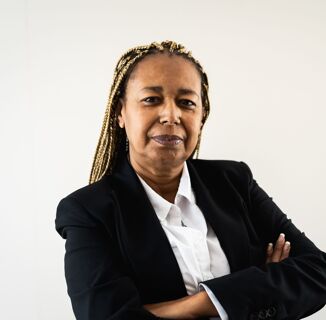Life is about to get a lot harder for LGBTQ people in Tanzania’s largest city.
Paul Makonda, the regional governor of Dar es Salaam, announced on Monday that police would begin mass arrests of queer and transgender people. In a news conference, Makonda claimed he had received “reports that there are so many homosexuals in our city… advertising and selling their services on the internet.”
“These homosexuals boast on social networks,” the governor said.
“Therefore, I am announcing this to every citizen of Dar es Salaam: If you know any gays, report them to me,” he added in a speech broadcast over social media.
Authorities in the populous city of 4.3 million will begin rounding up queer and trans people on Monday, Makonda said. Officials have reportedly already begun creating a database of hundreds of Tanzanians alleged to be LGBTQ, many of whom could now face prosecution.
A charge of “gross indecency between persons” in the East African nation carries a maximum sentence of life in prison under the Tanzania Penal Code of 1945.
The governor said a 17-member task force will combing the social media accounts of suspected queer and trans people looking for “evidence” they had violated the colonial-era sodomy law, a remnant of British occupation.
Officials appointed to the task force will consist of representatives from the Tanzania Communications Authority and local police.
Makonda encouraged members of the public to come forward with any information which might assist the surveillance team in detaining LGBTQ people. He said authorities had already received more than 18,000 messages alleging violations of the sodomy law.
At press time, advocacy organizations like Human Rights Watch and OutRight International had not released statements responding to the planned campaign.
However, Amnesty International released a report in 2017 condemning what it called “an unprecedented crackdown” on queer and transgender people in Tanzania. Authorities have threatened to publish names of individuals believed to be LGBTQ and to deport advocates working on behalf of gender and sexual minorities.
In addition, the government shut down an estimated 40 HIV/AIDS clinics in the country, accusing them of promoting homosexuality. Many of those resource centers have continued to operate underground.
Most famously, Tanzania banned the sale of anal lubricants in 2016 to prevent gay men from having sex.
Makonda predicted his internment campaign would not be received well by foreign leaders and international human rights groups but said he wasn’t concerned about the backlash. “I prefer to anger those countries than to anger God,” he claimed.
Should the government move forward with its pledge, it wouldn’t be the first time authorities have rounded up Tanzanians alleged to be LGBTQ.
In 2017, police in the semi-autonomous island of Zanzibar arrested eight men and 12 women under suspicions that they were “engaged in homosexuality.” The detainees were attending a workshop on HIV/AIDS at the time of their arrest.
UPDATE (11/1/2018):
Amnesty International has released a statement condemning Tanzania’s anti-LGBTQ crackdown.
“It is extremely regrettable that Tanzania has chosen to take such a dangerous path in its handling of an already marginalized group of people,” said Joan Nyanyuki, Amnesty’s regional director for East Africa, the Horn and the Great Lakes, in a Thursday press release. “The idea of this taskforce must be immediately abandoned as it only serves to incite hatred among members of the public. LGBTQ people in Tanzania already face discrimination, threats, and attacks without hateful statements of this kind.”
“The Tanzanian government must also ensure that no one, especially those in positions of power like Paul Makonda, makes statements or takes actions to sow hatred that endangers the lives of people just because of their sexual orientation or gender identity,” Nyanyuki continued. “The government has a duty to protect everyone in Tanzania and uphold their human rights without discrimination. They must take this obligation seriously and not initiate programs or use government agencies to rob LGBTI people of their rights.”
Photo via Flickr/D-Stanley
Help make sure LGBTQ+ stories are being told...
We can't rely on mainstream media to tell our stories. That's why we don't lock our articles behind a paywall. Will you support our mission with a contribution today?
Cancel anytime · Proudly LGBTQ+ owned and operated
Read More in Culture
The Latest on INTO
Subscribe to get a twice-weekly dose of queer news, updates, and insights from the INTO team.
in Your Inbox














